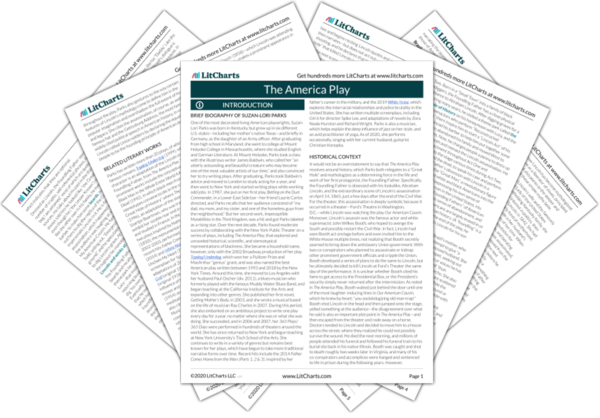Lucy’s speech suggests that there was something sinister, exploitative, or even traumatic about her relationship to Pa, even though she also seems to have loved him. She never explains this outright, instead leaving the audience with the same sense of confusion and ambiguity that she clearly feels about her family. Brazil also reveals his complex feelings about family here: while the Foundling Father is clearly significant to him, it is not clear whether he truly “miss[es]” his Pa in an emotional sense, because he essentially never knew the man. “—Imissim—” might just as well be a strict statement of fact—Pa is literally missing from Brazil’s life—as an expression of familial love.
